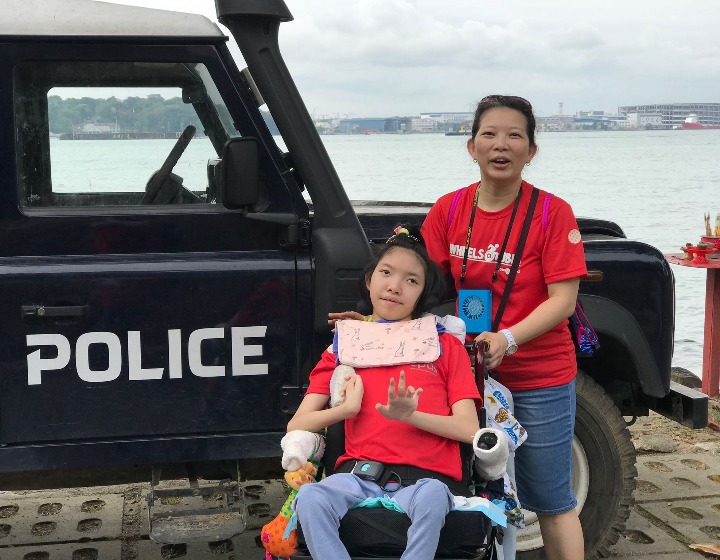
 Post Category - ParentingParenting - Post Category - Older KidsOlder Kids
Post Category - ParentingParenting - Post Category - Older KidsOlder KidsCindy Wong talks about her daughter’s cerebral palsy diagnosis, their journey with Make-A-Wish Singapore, and why she’s an avid supporter of the Annual Santa Run for Wishes fundraiser
Cindy Wong’s daughter, Hillary, weighed only 2kg when she was born in June 2003 following a full-term pregnancy. At the time, it didn’t occur to Cindy that Hillary might have a medical condition, which was something she only realised when she noticed that Hillary was unable to do the same things that other babies her age did. Hillary was diagnosed with cerebral palsy during a check-up at KK Women’s and Children’s Hospital (KKH), where her doctor explained that she had caught the Cytomegalovirus (CMV) herpes virus, which caused brain damage and profound hearing loss.
At age 8, Hillary received a Rodeo 14T buggy from Make-A-Wish Singapore, which has greatly aided her mobility. Cindy shares how the organisation’s support has helped the family, why she makes it a point to do the annual Santa Run for Wishes fundraiser with Hillary, and how raising Hillary has taught her that nothing is impossible when you have love in your heart.
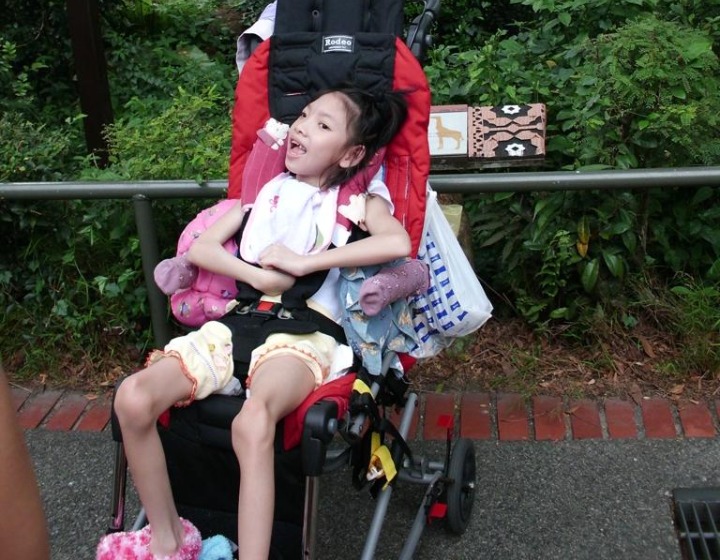
How did you feel when you first received the diagnosis?
When the doctor first told us, I did not understand what this meant until I researched it later. It was a shock for both my husband and me. I was heartbroken and at a loss of what to do. I had to tend to our two young kids on my own most of the time, which made this period even tougher and more stressful for me.
Are there any programmes Hillary participates in?
I started to send Hillary for Early Childhood Inclusive Practice (ECIP) after a doctor recommended the Asian Women’s Welfare Association (AWWA), a special needs school. At AWWA, she had the opportunity to participate in social life activities, Occupational Therapy (OT), Physical Therapy (PT) and Speech-Language and Processing (SLP) therapy sessions as well as lessons on basic life skills until the age of 6. I then transferred her to the Cerebral Palsy Alliance Singapore (CPAS) to continue her programme, which ended this year as she turned 18. In addition, I also signed her up for Club Rainbow events and activities whenever possible and encouraged her to join in Make-A-Wish Singapore’s year-end Christmas parties.
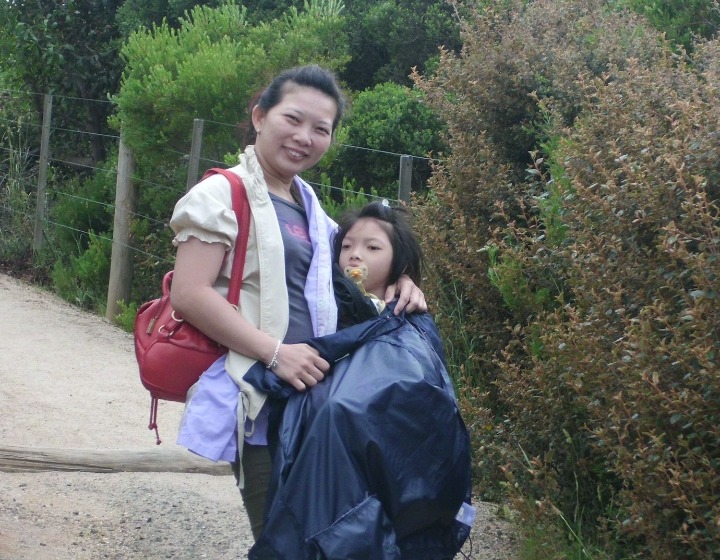
How does Hillary tackle the physical challenges she may experience in daily life?
Hillary relies heavily on my help to go about her daily activities. When she was a baby, she could not communicate verbally, and I would have to guess, and I spent the first two years trying different ways of communicating with her. It was very tough, and I recall having to bring her to three different hospitals for medical appointments mostly by myself if my husband was not available. I also used to carry her in my sarong whenever I brought her out or took her home from school, as she could not sit properly in a stroller; there weren’t many wheelchair-friendly buses back then either. Although most buses are wheelchair-friendly now, not every bus captain is willing to take us. I only started pushing her on the wheelchair when she was 13 years old – when I started having difficulties carrying her.
Has Hillary’s diagnosis changed your parenting approach over the years?
It has not been easy caring for her through difficult times and obstacles. I rarely enjoy personal time as I am always busy taking care of her. For example, Hillary is unable to eat or be fed orally, so I would have to blend and mix all her foods (except for fluids). I am always trying different ways to feed her as she still does not know how to feed herself. To date, Hillary has undergone a cochlear implant as well as medical procedures following her hip, leg and hamstring dislocations. The most severe was a spinal cord surgery, which led to bacterial infection in her implant. As a result, she was hospitalised for more than five months and underwent three more surgeries during her hospitalisation, with one almost being fatal. Each surgery entailed many dietary changes, which I found very stressful.
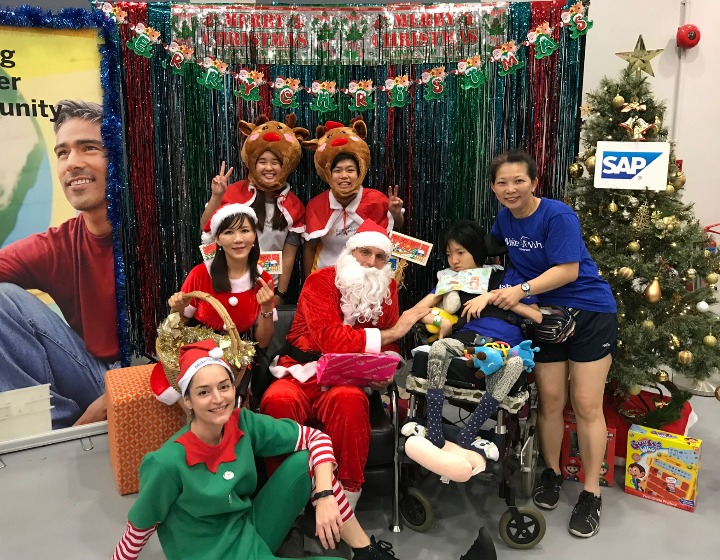
When did you first begin working with Make-A-Wish-Singapore?
I first began working with Make-A-Wish Singapore when Hillary became a Wish Child at 8 or 9 years old. We had come across many parents whose children’s wishes had been granted through Make-A-Wish Singapore.
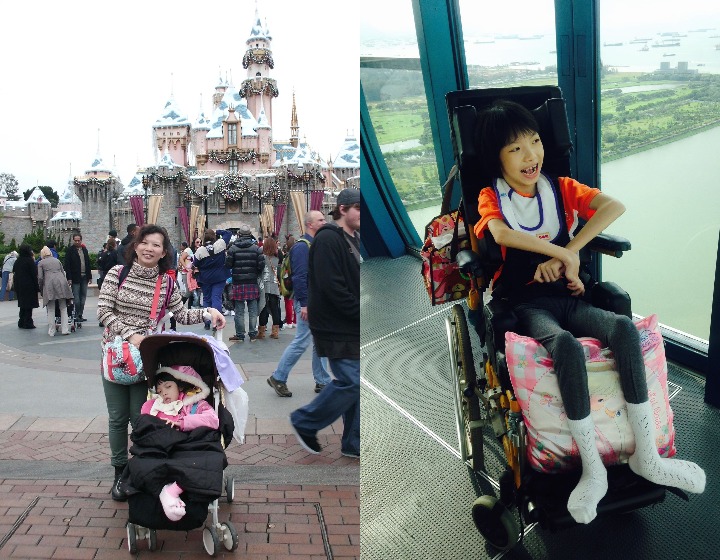
How did Hillary’s wish positively impact her and your family?
On 30 April 2011, Make-A-Wish Singapore presented Hillary, who was then 8 years old, with a Rodeo 14T buggy. As cerebral palsy affects a person’s ability to move around conveniently, Hillary’s wish greatly aided her daily activities. After Hillary outgrew the buggy, we transferred her to a wheelchair, as we saw how much joy she had when we took her out to visit shopping malls, or when she took part in outdoor activities and rode the MRT. When I bring Hillary with me on my runs, it always makes her happy to watch other people and the scenery. In addition, Hillary also loves to travel. After she started using a wheelchair, we were able to bring her to places such as Gold Coast and Melbourne in Australia, Los Angeles, San Francisco and Las Vegas in America, as well as Kuala Lumpur, Penang, Malacca and Fraser’s Hill in Malaysia. Although there are many things that Hillary is not able to do and experience, she is a cheerful, happy and well-behaved girl because she has always received lots of love from me and our family.
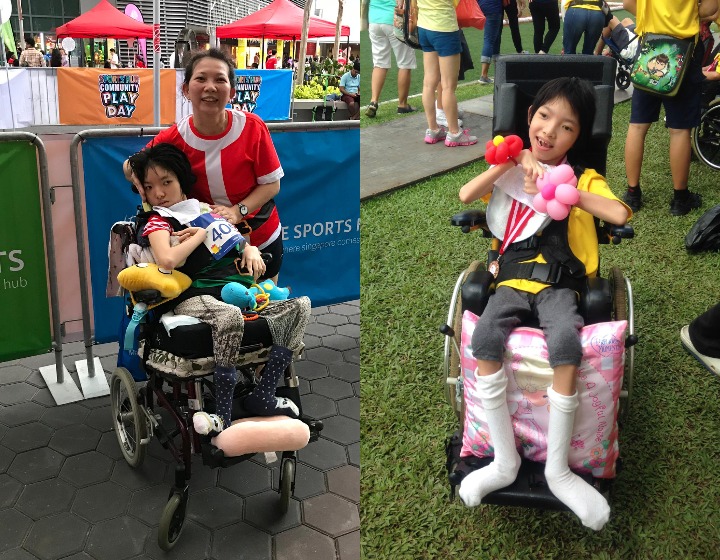
Why did you both get involved in Santa Run for Wishes?
I first signed up for Santa Run for Wishes two years ago, as I thought it would be meaningful to encourage and help parents of Wish Children and most importantly, promote awareness of children with disabilities and special needs so that more members of society will learn to accept them as they are. I hope that through sharing our spirit of hope and strength, we can positively impact and light up others’ lives. I have brought Hillary along with me for Santa Run for Wishes for a few years now, and I am especially appreciative that their inclusivity allows me to take my daughter out for a meaningful and active event.
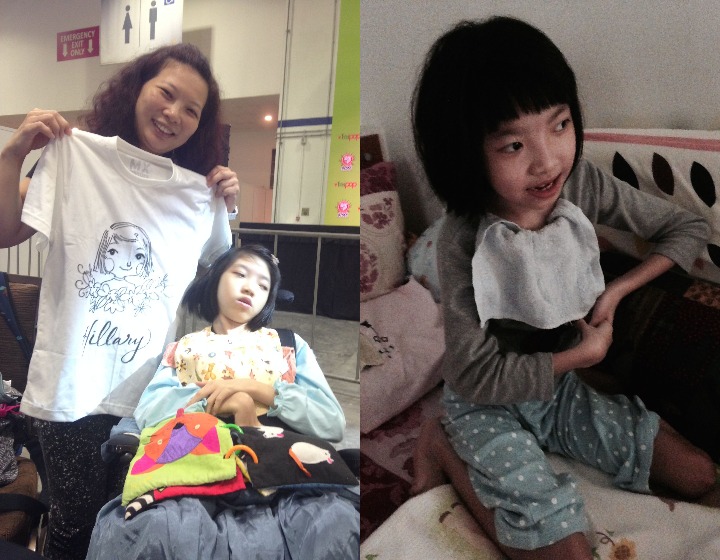
What are some things Hillary has taught you over the years through her approach to life?
It is through caring for Hillary that I have become stronger, braver and more independent in solving whatever problems lie ahead. I have also benefitted from my church’s support. Through all these struggles, I have learnt to think positively and live cheerfully despite all the sadness and difficulties. I believe that in life, nothing is impossible as long you have love in your heart and that parents should prioritise doing things that their children – and not parents – need or want.
Do you have a special message that you’d like to share with our readers?
I would like to encourage other parents to love their children for who they are and not what they might need or want from them. I hope they will prioritise bringing their children up with the right attitude towards life, teaching values such as respecting others, caring for them and being generous when it comes to sharing, which I feel are more important than pushing them towards material goals such as going to a good and famous school. I hope parents will also be appreciative and thankful for God who has blessed them with a healthy and normal child. For parents of children with a critical illness, they can also refer their child to Make-A-Wish Singapore to have his/her wish granted. The effect of a wish lasts long after the wish has been granted; it doesn’t just benefit children with critical illnesses, it also helps their families and communities.
The annual Santa Run for Wishes event aims to raise funds for Make-A-Wish Singapore, a children’s charity organisation that grants the wishes of children with critical illnesses. Interested in making a donation or signing up for Santa Run for Wishes? Click here for all the registration details!
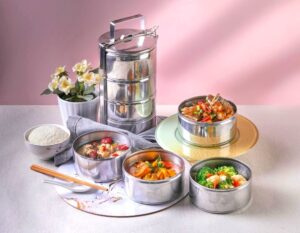





 View All
View All




 View All
View All









 View All
View All




